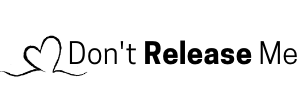As someone who spent a stint in a behavioral unit, I know first-hand how much good mental healthcare costs. Crazy ain’t cheap! Adults with serious mental illness often require hospital stays, ongoing prescription medication and psychotherapy treatments. For the 12% of the population that have a serious mental illness and no insurance, the costs of mental illness can bankrupt them, especially when you factor in the time off from work many may need or the inability to work while impaired. (1)
Psychotherapy, or talk therapy, one of the most broadly prescribed treatments for mental illnesses can cost $100 to $500 per session, without insurance. If you’re fortunate enough to have behavioral insurance, it will help with the expenses, but the co-pays can add up with weekly treatments at $50 or so per session. And if you need to see someone twice a week, your costs can add up to thousands of dollars per year, just to talk with someone.
Psychotherapy is a conventional treatment aimed at helping you change your behavior, thoughts, and emotions in order to improve your mental health. Widely-used, talk therapy is administered by trained professionals and often applied in conjunction with medication for people diagnosed with mental illness, but also used by people who just want help learning to deal with the pressures and stress in their lives. Having excluded all physical causes of their illness, many rely on talk therapy as the last option in healing themselves.
Sadly, many don’t have the ability to get psychotherapy help for a variety of reasons: They don’t live in an area with a practicing psychiatrist, family practice specialists aren’t available, lack of quality professionals, inability to find someone they like, or unaffordability. As much as 60% of U.S. counties don’t have a single practicing psychiatrist. (1)
What if you have no insurance and can’t afford to shell out hundreds of dollars per week? Many people turn to alternative approaches for self-help. The most obvious option is to read more about your illness and find books that offer methods for self-treatment. With technology, you can find online help in the form of chat rooms, or online therapists that are more reasonably priced. Coping skills like journaling, yoga, and meditation are some areas to explore as well. Well known self-help gurus offer podcasts, books, conventions, classes, quotes and motivational thoughts for those that can’t afford $200 an hour. Of course, these are professionals, and their services aren’t free, so look for the hidden costs.
Self-help may not be the best solution for the myriad of mental illnesses that people suffer, but in my case, finding alternative ways to make myself feel better, understand my behaviors, recondition my disparaging thoughts, and find reasons to smile were meaningful accomplishments that moved me forward on the road to recovery.
Some of the self-help influencers that I’ve explored:
-
- Brene Brown
- Trent Shelton
- The Angry Therapist
- Create The Love
- The Class: Transformative workout for the body & mind. Allow yourself to feel every emotion, the physical pain, to break through the fear
Other sources to consider:
-
- Self Help Techniques for Coping with Mental Illness
- Self-Help Resources at the Veterans Administration
- Self Help Techniques for Better Mental Health
- Self-Help Tools at Mental Health America
- Self-Help Articles at HealthyPlace
- Self-Help for Mental Health
- 20 Self-Help Podcasts to Listen to
- 53 Self-Care Ideas for Optimal Mental Health
- UK NHS Resources
- Mental Health Books
- Centre for Clinical Interventions (Government of Western Australia)
- Best Self-Help Books for Mental Health and Anxiety
- Mental Health Podcasts
- Mental Health Apps
- Apps for Self Care
- Mental Health Articles
- Counseling videos – How to Break Approval Seeking Habits
- Ted Talks. The Importance of Self Care
- Ted Talks. The Importance of Vulnerability (Brene Brown)
References:
(1) Mental health by the numbers. https://nami.org/mhstats




Leave A Comment
You must be logged in to post a comment.